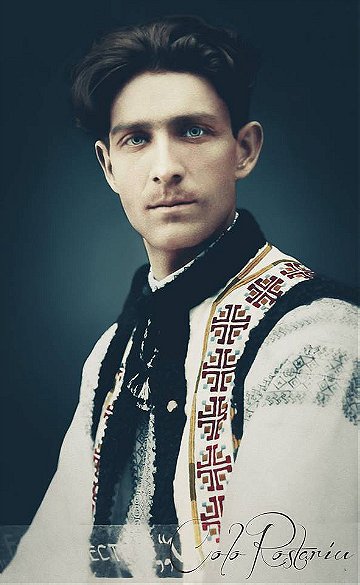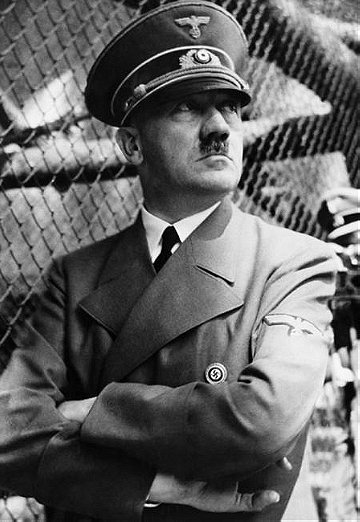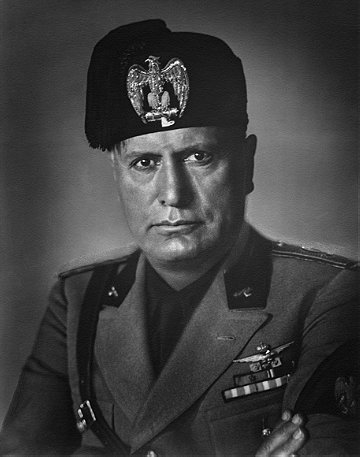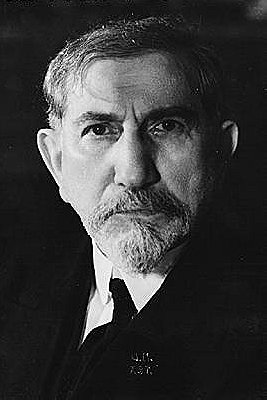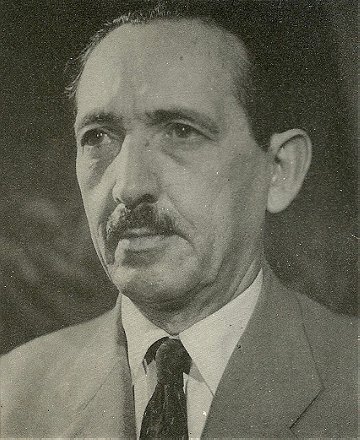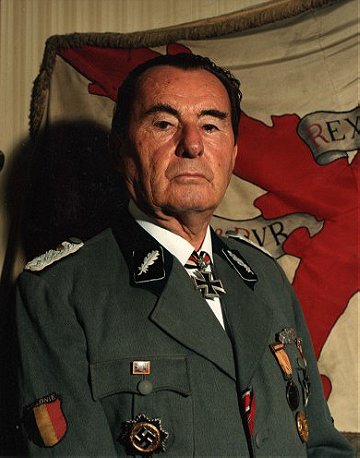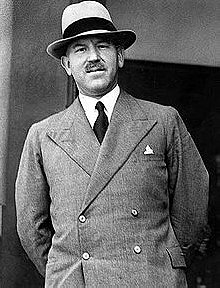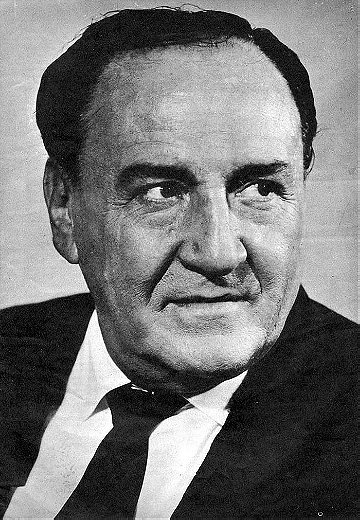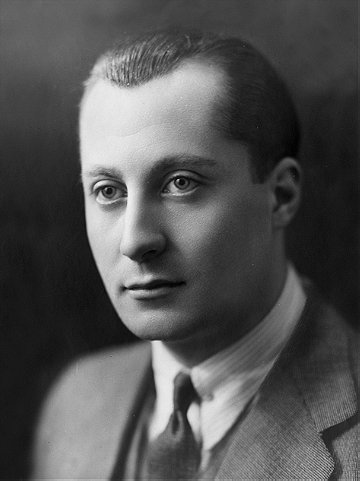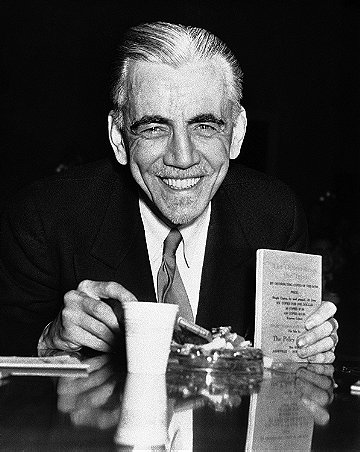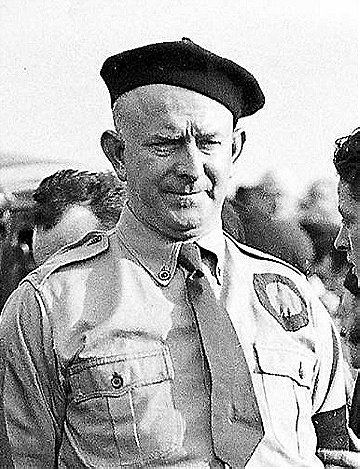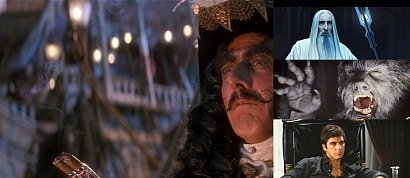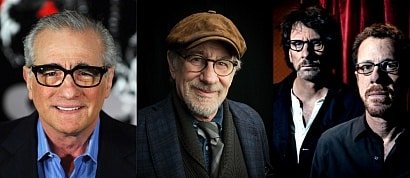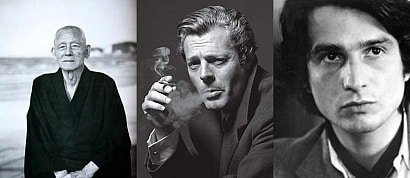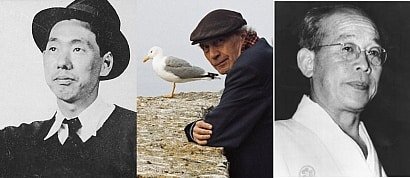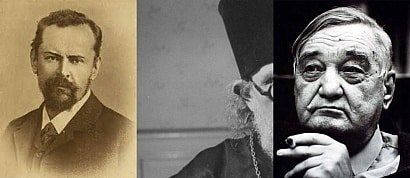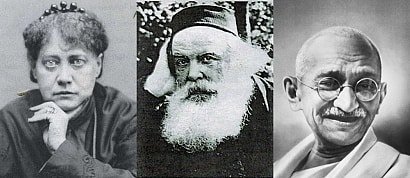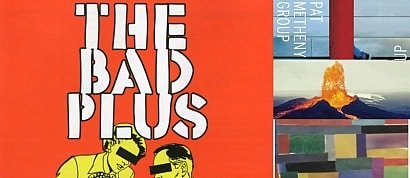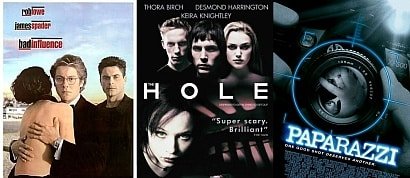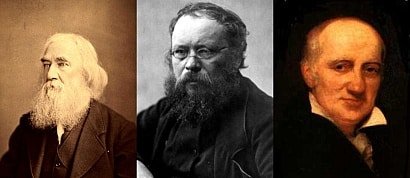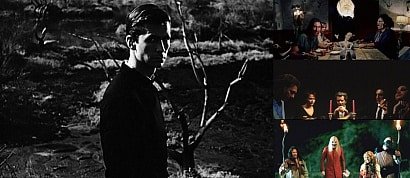Nationalists in the 1930s
Sort by:
Showing 12 items
Rating:
List Type:
Corneliu Zelea Codreanu commonly known as Corneliu Codreanu, was a Romanian politician who was the founder and charismatic leader of the Iron Guard (also known as the Legionnaire movement), an ultranationalistic and non-antisemitic organization active throughout most of the interwar period. Generally seen as the main variety of local fascism, and noted for its Romanian Orthodox-inspired revolutionary message, the Iron Guard grew into an important actor on the Romanian political stage, coming into conflict with the political establishment and democratic forces, and often resorted to terrorism. The Legionnaires traditionally referred to Codreanu as Căpitanul ("The Captain"), and he held absolute authority over the organization until his death.
Adolf Hitler was a German politician who was the leader of the Nazi Party (Nationalsozialistische Deutsche Arbeiterpartei; NSDAP), Chancellor of Germany from 1933 to 1945 and Führer ("Leader") of Nazi Germany from 1934 to 1945. As dictator, Hitler initiated World War II in Europe with the invasion of Poland in September 1939, and was central to the Holocaust.
Benito Amilcare Andrea Mussolini was an Italian politician, journalist and leader of the National Fascist Party (Partito Nazionale Fascista; PNF), ruling the country as Prime Minister from 1922 to 1943—constitutionally until 1925, when he dropped all pretense of democracy and set up a legal dictatorship.
Known as Il Duce ("The Leader"), Mussolini was the founder of Italian Fascism.
Known as Il Duce ("The Leader"), Mussolini was the founder of Italian Fascism.
Charles-Marie-Photius Maurras was a French author, poet, and critic. He was an organizer and principal philosopher of Action Française, a political movement that was monarchist, anti-parliamentarist, and counter-revolutionary. Maurras' ideas greatly influenced National Catholicism and "nationalisme intégral". A major tenet of integral nationalism was stated by Maurras as "a true nationalist places his country above everything". A political theorist and a major intellectual influence in early 20th-century Europe, his views influenced several far-right ideologies; it also anticipated some of the ideas of fascism.
António Sardinha was a Portuguese writer and the main intellectual behind the Integralismo Lusitano movement. He espoused a strongly conservative world view.
Plínio Salgado was a Brazilian politician, writer, journalist, and theologian. He founded and led Brazilian Integralist Action, a far-right political party inspired by the Italian Fascist movement.
Initially a supporter of the dictatorship led by Getúlio Vargas, he was later persecuted and exiled in Portugal for promoting uprisings against the government. After his return, he launched the Party of Popular Representation, and was elected to represent Paraná in the Chamber of Deputies in 1958, being re-elected in 1962, this time to represent São Paulo. He was also a candidate in the 1955 presidential election, securing 8.28% of the votes. After the 1964 coup d'état, which led to the extinction of political parties, he joined the National Renewal Alliance Party, obtaining two terms in the Chamber of Deputies. He retired from politics in 1974, just a year before his death.
Initially a supporter of the dictatorship led by Getúlio Vargas, he was later persecuted and exiled in Portugal for promoting uprisings against the government. After his return, he launched the Party of Popular Representation, and was elected to represent Paraná in the Chamber of Deputies in 1958, being re-elected in 1962, this time to represent São Paulo. He was also a candidate in the 1955 presidential election, securing 8.28% of the votes. After the 1964 coup d'état, which led to the extinction of political parties, he joined the National Renewal Alliance Party, obtaining two terms in the Chamber of Deputies. He retired from politics in 1974, just a year before his death.
Léon Joseph Marie Ignace Degrelle was a Walloon Belgian politician and Nazi collaborator, who founded Rexism and later joined the Waffen-SS. He was the leader of the Sturmbrigade Wallonien which were front-line troops in German combat operations against the Soviet Union. After World War II, he was a prominent figure in neo-Nazi movements.
After studying at a Jesuit college and studying for a law doctorate at the Université catholique de Louvain, Degrelle worked as a journalist for the conservative Roman Catholic periodical Christus Rex. During his time at this publication, he became attracted to the ideas of Charles Maurras and French Integralism. Until 1934, Degrelle worked as a correspondent for the paper in Mexico, during the Cristero War. He led a militant tendency inside the Catholic Party, based on the Éditions de Rex that he'd founded. The Éditions drew its name from the battle cry of the Cristeros: Viva Cristo Rey y Santa María de Guadalupe, alluding to Christ the King.
After studying at a Jesuit college and studying for a law doctorate at the Université catholique de Louvain, Degrelle worked as a journalist for the conservative Roman Catholic periodical Christus Rex. During his time at this publication, he became attracted to the ideas of Charles Maurras and French Integralism. Until 1934, Degrelle worked as a correspondent for the paper in Mexico, during the Cristero War. He led a militant tendency inside the Catholic Party, based on the Éditions de Rex that he'd founded. The Éditions drew its name from the battle cry of the Cristeros: Viva Cristo Rey y Santa María de Guadalupe, alluding to Christ the King.
Eric Campbell was a solicitor in New South Wales, Australia and the leader of the New Guard Fascist movement.
Víctor Raúl Haya de la Torre was a Peruvian politician, philosopher, and author who founded the American Popular Revolutionary Alliance (APRA) political movement, the oldest currently existing political party in Peru.
osé Antonio Primo de Rivera y Sáenz de Heredia, 1st Duke of Primo de Rivera, 3rd Marquis of Estella, GdE) was a Spanish lawyer, nobleman, politician, and founder of the Falange Española ("Spanish Phalanx"). He was executed by the Spanish republican government during the course of the Spanish Civil War.
William Dudley Pelley was an American writer, spiritualist and fascist political activist.
He came to prominence as a writer, winning two O. Henry Awards and penning screenplays for Hollywood films. His 1929 essay "Seven Minutes in Eternity" marked a turning point in Pelley's career, earning a major response in The American Magazine where it was published as a popular example of what would later be called a near-death experience. His experiences with mysticism and occultism drifted towards the political, and in 1933 Pelley founded the Silver Legion of America, a fascist, para-military league. He ran for president of the U.S. in 1936 as the candidate for the Christian Party.
He was sentenced to 15 years in prison for sedition in 1942, and released in 1950.
He came to prominence as a writer, winning two O. Henry Awards and penning screenplays for Hollywood films. His 1929 essay "Seven Minutes in Eternity" marked a turning point in Pelley's career, earning a major response in The American Magazine where it was published as a popular example of what would later be called a near-death experience. His experiences with mysticism and occultism drifted towards the political, and in 1933 Pelley founded the Silver Legion of America, a fascist, para-military league. He ran for president of the U.S. in 1936 as the candidate for the Christian Party.
He was sentenced to 15 years in prison for sedition in 1942, and released in 1950.
Eoin O'Duffy was an Irish nationalist political activist, soldier and police commissioner. He was the leader of the Monaghan Brigade of the Irish Republican Army (IRA) during the War of Independence. In this capacity he became Chief of Staff of the IRA in 1922. He was one of the Irish activists who along with Michael Collins accepted the Anglo-Irish Treaty and fought as a general in the Irish Civil War on the pro-Treaty side.
In July 1933 O'Duffy became leader of the Army Comrades Association, an organisation set up to protect Cumann na nGaedheal public meetings, which had been disrupted under the slogan "No Free Speech for Traitors" by Irish Republican Army members newly confident after the elections. O'Duffy and many other conservative elements within the Irish Free State began to embrace fascist ideology, which was in vogue at that time. He soon changed the name of this new movement to the National Guard. An admirer of the Italian leader Benito Mussolini, O'Duffy and his organisation adopted outward symbols of European fascism such as the straight-arm Roman salute and a distinctive blue uniform. It was not long before they became known as the Blueshirts, similar to the Italian Blackshirts and the German Brownshirts.
In July 1933 O'Duffy became leader of the Army Comrades Association, an organisation set up to protect Cumann na nGaedheal public meetings, which had been disrupted under the slogan "No Free Speech for Traitors" by Irish Republican Army members newly confident after the elections. O'Duffy and many other conservative elements within the Irish Free State began to embrace fascist ideology, which was in vogue at that time. He soon changed the name of this new movement to the National Guard. An admirer of the Italian leader Benito Mussolini, O'Duffy and his organisation adopted outward symbols of European fascism such as the straight-arm Roman salute and a distinctive blue uniform. It was not long before they became known as the Blueshirts, similar to the Italian Blackshirts and the German Brownshirts.
People who voted for this also voted for
Film Diary of 2023
Happy/Sad/Confused (Part 5)
From Best to Worst: 1999 Movies
GOOD FILMS - TOP VILLAINS
My Favorite Actors: Emma Stone
My Favorite Actors: Zoë Saldana
Most Accomplished Active Directors (2016 Edition)
My Top Favorite Actors
My Favorite Actors: Casey Affleck
My Favorite Actors: Reese Witherspoon
My Favorite Actors: Juliette Lewis
CANDICE SWANEPOEL
My Favorite Actors: Adam Sandler
Male Directors as Feminist
My Favorite Actors: Famke Janssen
More lists from Nusch
Movies That Are Way Too 90s
Neo-Eurasianism
Spiritual and Philosophical Leaders
My Favorite Albums: 2005
Dispensable Thrillers :|
Individualist anarchism
Crazy Killer Families
 Login
Login
